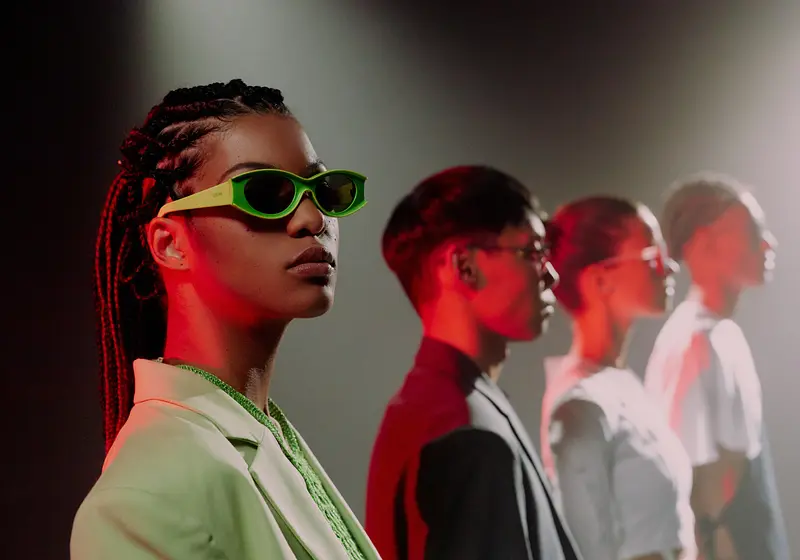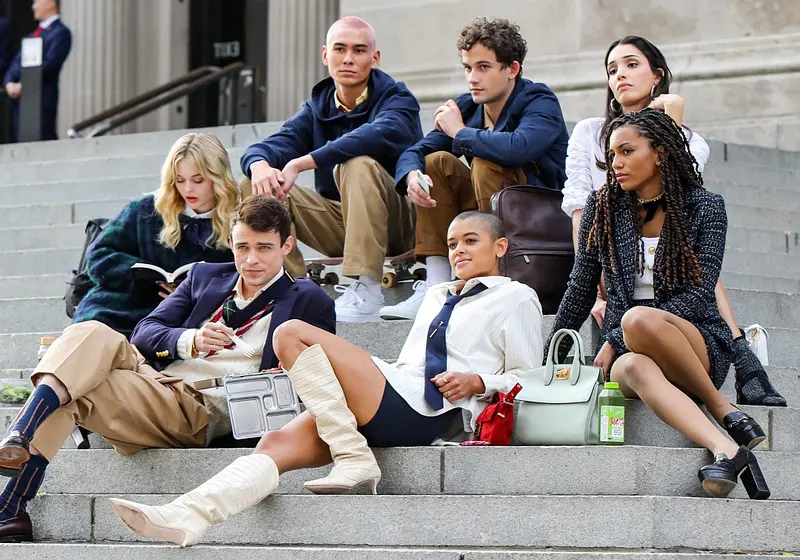As the youngest of Generation Z are reaching middle school and the oldest are in the workforce, many television shows have shifted their target audience from our parents to the new consumers. Gen Z, like every audience, is looking for shows that they can connect with—shows that portray people like them or characters that they can relate to on a deeper level.
Are these TV shows and movies successfully relating to Gen Z or are they creating caricatures of Gen Z values?
Each generation has generational identities and characteristics. Born between 1946 and 1964, Boomers are known for their work ethic, traditional values, and assurance. Boomers have, also, gained the title of the “Me Generation”, due to the self-involved qualities associated with the Baby Boomers.
Next in the line of generations, Generation X, born between 1965 and 1980, combated the traditional values of their elders with the punk and grunge scenes. Gen X is known for their independence and workaholic nature.
Other generations look down upon Millennials. Born between 1981 and 1996, Millennials are labeled as being lazy, selfish, and spoiled—likely due to the rise of technology and the crumbling of the financial system that worked for previous generations.
Generation Z, born between 1997 and 2012, is the first generation to grow up at the same rate as technology has grown; Gen Z is individualist, progressive, and “chronically online”.
So how is Gen Z portrayed in the media? The media, and as a result other generations, illustrate Gen Z as living online. Many television shows and movies have used the trope that Gen Z can not function without access to wifi; Generation Z is painted as speaking in the same way one does online, using extensive “hyper-woke” dialogue.
Presented as shallow and self-obsessed, Gen Z’s reformist nature is framed as youthful naivety. In reality, Gen Z has the world’s information at their fingertips. The shared experiences, posted on social media, connect users together. Social media have allowed the younger audience to learn from each other and develop ideas separate from their families and communities.
“Generation Z students are on track to become the most educated generation,” said Alan Dennington, the Chief Medical Officer for Timely MD, “In 2018, 57% of 18 to 21-year-olds were in college, compared with 43% of Gen Xers at similar ages.”
Partly due to the intelligence of Gen Z combined with the ever-changing trends and interests of social media, it is clear why an outsider may find it difficult to understand Gen Z’s mannerisms.
Gen Z’s humor is constantly changing. A meme’s life cycle has shortened at the same rate as attention spans. Something funny 3 months ago can be considered embarrassing to joke about now—for example, any meme about Will Smith slapping Cris Rock would probably be accompanied by an eye roll.
Alongside quick humor cycles, some mannerisms are exclusively on our phones. Commenting “submissive and breedable” on a TikTok of an edit of your favorite celebrity may be acceptable, but telling someone face-to-face they look “submissive and breedable” may not be taken the same.
Outsiders may assume internet slang is how Generation Z speaks in real life. When Gen Z hears slang used in the incorrect manner, the mirror held up to behavior online can become embarrassing.
The satirical humor of Gen Z is difficult to decipher—even for its own generation. Audra Johnson’s “wolf girl” content on TikTok includes videos of her jumping up and down and barking while fighting with the other kids over playground territory. Although most Gen Z realize that her content is satire and, thus, funny, there are still comments that question if she is joking.
Older generations may not pick up on the satire and believe that her 3 million followers act like wolves, or conversely, believe Audra Johnson’s content would appeal to every Gen Z user. Since it is hard to pinpoint what is strictly online and what is real life, Gen Z characters, that are supposed to connect with the audience, can seem satirical and negative when written by older generations.
Famous for its cringe-worthy dialogue, Saturday Night Live’s “Gen Z Hospital” skit is a perfect example of how many shows depict Gen Z characters. The Doctor, played by Elon Musk, says, “Your bestie took a major L while driving her Hellcat.” Although SNL’s skit is purposefully satirical, many scripts sound similar to the skit, with Gen Z characters written from a distance.
Is this something that is strictly a Gen Z problem?
Of course not! Most likely, every generation has watched a show that targets their generation and found the characters not relatable. The problem is not the current generation writing the scripts; the problem is the system that refuses to bring in representation to write groups being portrayed in the media.
“But first, obviously, you can see that I’m not 18 years old or 23 years old. We looked at our writing team, and we made sure that many of them were quite young,” stated Carly Heaton, the producer for Heartbreak High, in an interview with The Hollywood Reporter, "And then we actually went out to focus groups and we spent a few weeks with teenagers from all walks of life in Sydney. And we just walked through their lives with them — what they love, what they hate, what they’re feeling.”
Heartbreak High is an Australian comedy-drama television series created for Netflix, by Hannah Carroll Chapman. It is a soft reboot of the 1994 series with the same name. The 2022 reboot, Heartbreak High, has been praised by Gen Z for the relatability and inclusivity of its characters. As stated by Carly Heaton, the team committed to having an accurate representation of groups portrayed in the series.
Gen Z is often considered too young to be in the writing room, but until we are, we aren't likely to have many shows that represent us. Although we may not have the power to take over the Gen Z narrative within the media just yet, we have the choice of what media we consume and we have the power of social media for discourse about the misrepresentation of all kinds.




















